

Tao Te Ching
Tao Te Ching
Chapter 52Cultivating the Changeless
Chapter 52
Everything has a common beginning,
The mother of all things.
By understanding the mother,
We understand the children.
And when we understand the children,
We naturally turn back to the mother
And as the body comes to its ending,
We remain with nothing to fear.
Block all the openings,
Close all the gates
And life will always be full.
Open everything up
Always distracted and busy
And you will live without help or hope.
Those who understand the insignificant have vision
Those who protect the weak have strength.
Those who use their outer sight
While trusting their insight
Live beyond death
Cultivating the changeless.
Commentary
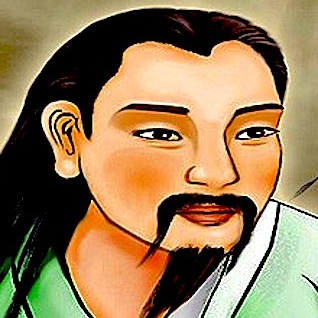
“When it is a man’s fate to undertake new beginnings, everything is still unformed, dark. Therefore he must hold back because any premature move might bring disaster.”
Comments: Click to comment

“I have shown you the path of liberation. Now liberation depends on you.”
Comments: Click to comment
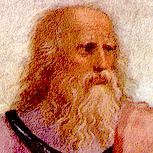
“With anything young and tender, the most important time is the beginning because that is the time when character is formed.”
Comments: Click to comment
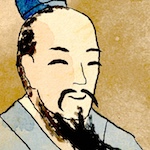
“Chuang-tzu’s wife died. When Hui-tzu came to offer his condolences, he found him pounding on a tub and singing… Chuang-tzu said, ‘The same process that brought her to birth, in time brought her to death, as naturally as fall turns into winter and spring into summer... if I went around wailing and pounding my chest, it would only show that I didn’t understand the first thing about reality.’”
Comments: Click to comment
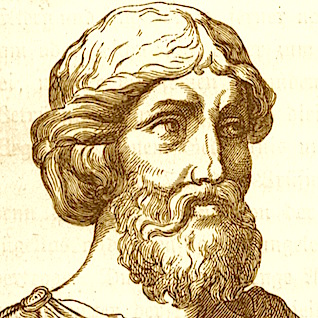
“The art of living well and the art of dying well are one.”
Comments: Click to comment

“The beginnings of fortune and calamity are subtle, so people are heedless of them. Only sages see the beginning and know the end.”
Comments: Click to comment
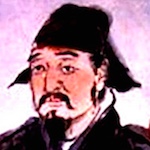
“Seeing what is great is not vision. Seeing what is small is vision. Protecting the strong is not strength. Protecting the weak is strength.”
Comments: Click to comment
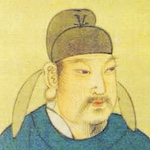
“Those who can see an event while it is still small and change their behavior accordingly we say have vision.”
Comments: Click to comment

“Wisdom probes the ignorance and dispels the longtime darkness. Eye cataracts worn away, illusory flowers naturally fade. Spirit radiance simply shines; recurring falseness dissolves.”
Comments: Click to comment

“She is with everyone and in everyone, and so beautiful is her secret that no person can know the sweetness with which she sustains people, and spares them in inscrutable mercy.”
Comments: Click to comment
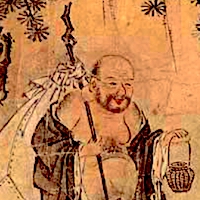
“As soon as the six senses merge, the gate is entered This unity is like salt in water, like color in dyestuff. The slightest thing is not apart from self.”
Comments: Click to comment
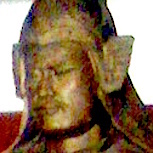
“If people knew that all creatures are the Way, and children are the mother, they would find the source in everything they meet.”
Comments: Click to comment

“There is no one who cannot teach someone something… Wise men appreciate everyone, for they see the good in each and know how hard it is to make anything good.”
Comments: Click to comment
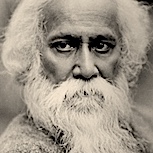
“He who is too busy doing good finds no time to be good.”
Comments: Click to comment
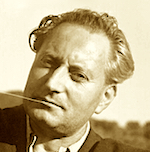
“Remember, all of man's happiness is in the little valleys. Tiny little ones. Small enough to call from one side to the other.”
Comments: Click to comment
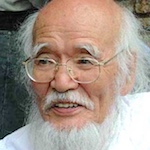
“The ultimate goal of farming is not the growing of crops, but the cultivation and perfection of human beings.”
Comments: Click to comment
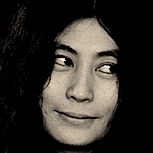
“We're all water from different rivers,
That's why it's so easy to meet,
We're all water in this vast, vast ocean,
Someday we'll evaporate together.”
Comments: Click to comment
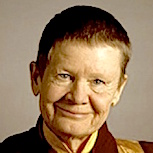
“Rejoicing in ordinary things is not sentimental or trite. It actually takes guts. Each time we drop our complaints and allow everyday good fortune to inspire us, we enter the warrior's world.”
Comments: Click to comment
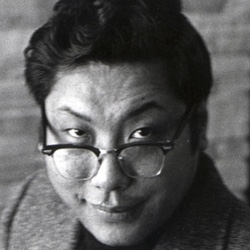
“Death could be said to be birth at the same time… The moment something ends, the next birth takes place naturally. So death is the re-creating of birth.”
Comments: Click to comment

“The process of birth and death is continual, taking place all the time… in the West people make birth more important. You congratulate someone for having a child, and you have parties for birthdays. But there are no parties for dying.”
Comments: Click to comment

Comments (1)